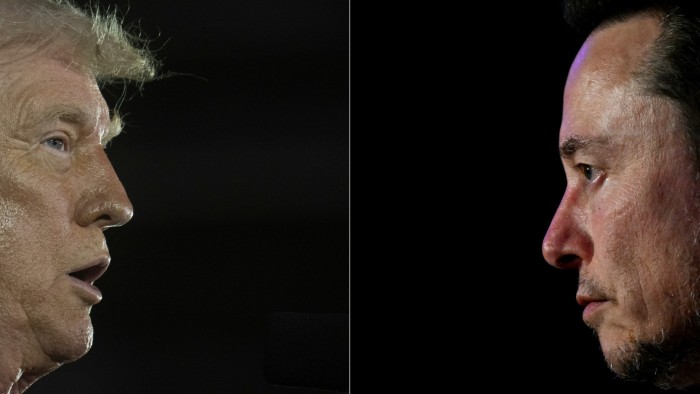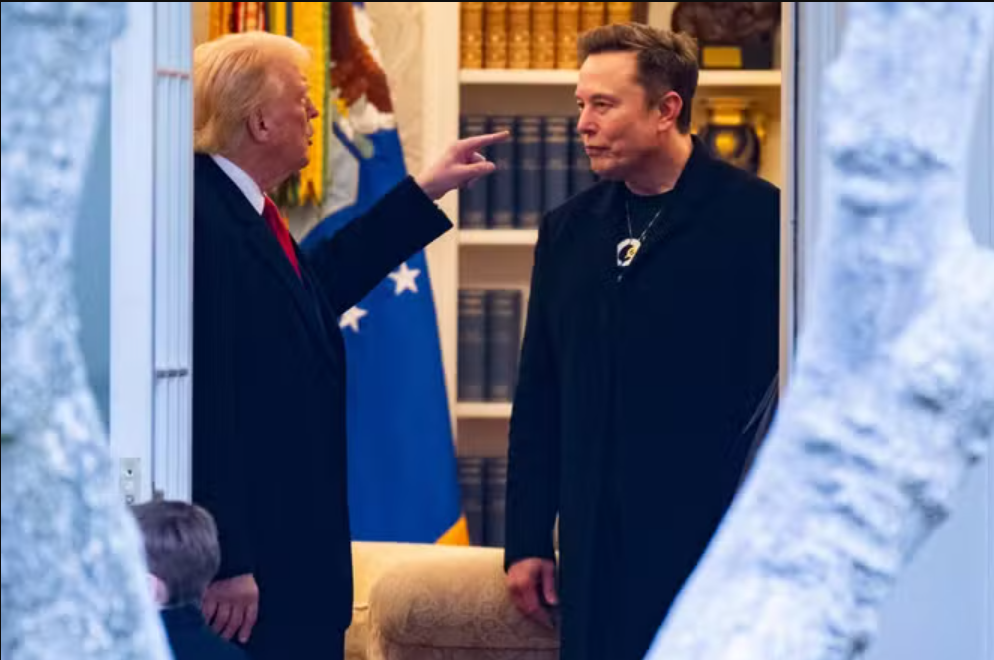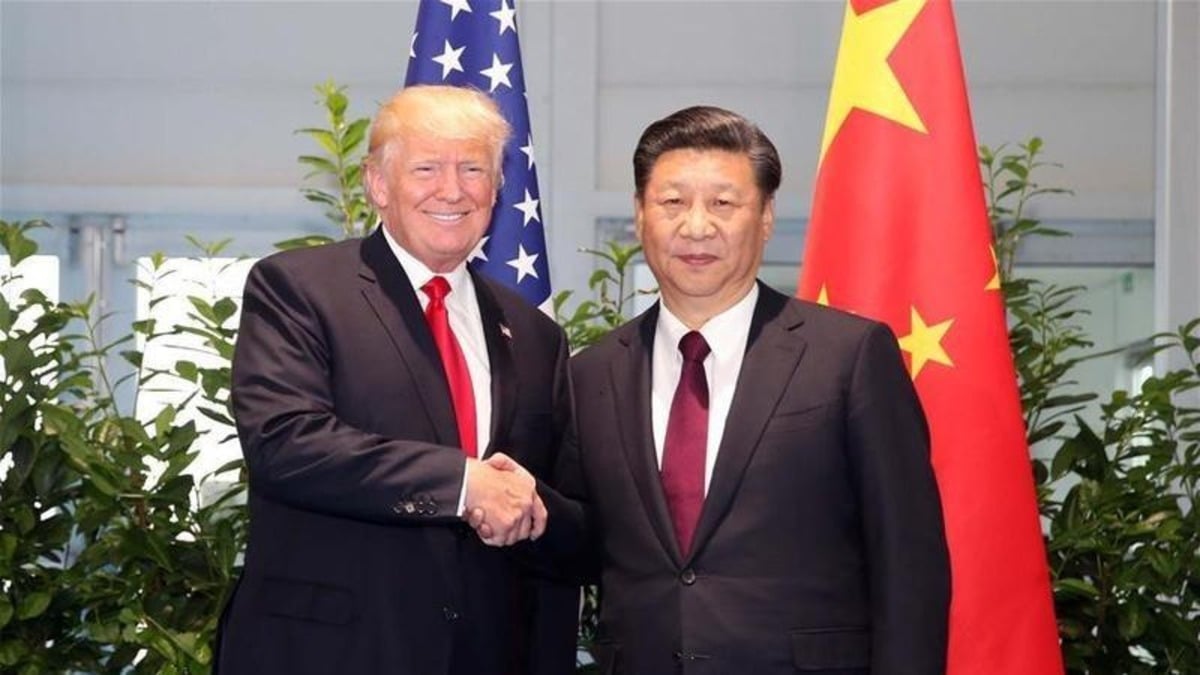Stocks rise as Wall Street tries to cope with trade war, Trump-Musk spat

New York CNN —
Stocks were higher Friday as President Donald Trump said the next round of US-China trade talks is set to take place on Monday.
Treasury Secretary Scott Bessent, Commerce Secretary Howard Lutnick and US Trade Representative Jamieson Greer will meet in London with representatives of China, Trump said on social media.
The Dow was up by 448 points, or 1.06%, in afternoon trading. The broader S&P 500 rose 1.15% and the tech-heavy Nasdaq Composite gained 1.4%. The three major indexes were largely unchanged after Trump’s post and all trading below their highest levels of the day.
“The meeting should go very well,” Trump said in his post. The announcement comes amid a punishing tariff war between the world’s two largest economies as Trump works to rebalance what he considers unfair trade between the US and its global partners. Trump and his Chinese counterpart Xi Jinping spoke for 90 minutes on Thursday. After Trump’s call with Xi, the US president said he was encouraged that ongoing trade tensions could soon be resolved.
Stocks had been in the green after a slightly better-than-expected jobs report this morning soothed nerves about how the US economy has been holding up during the early stages of Trump’s tariff regime.
The S&P 500 climbed above 6,000 points, which is a level it had not touched since February. The Dow, S&P 500 and Nasdaq were all on pace for back-to-back weeks of gains.
Stock futures had jumped higher Friday morning after data from the Labor Department showed the economy added 139,000 jobs last month, which was a slowdown from the month prior but better than anticipated.
Wall Street has been looking for any sign of relief that the economy might be muddling through the uncertainty stoked by Trump’s tariffs. Data from payroll company ADP on Wednesday showed an unexpected drop-off in private-sector hiring, though Friday’s Labor Department data helped assuage concerns about the economy.
“While job growth decelerated in May, the payroll data came in above expectations and it is extremely encouraging to see a six-figure print during a time of significant uncertainty driven by tariffs and economic fears,” said Glen Smith, CIO at GDS Wealth Management.
Yet uncertainty lingers about how Trump’s tariff policy might impact economic growth and business activity in the coming months. It will likely be a few months before the full impact of tariffs on business decisions, hiring and inflation show up in the economic data.
“The deleterious impacts of uncertain tariff policies have yet to be fully reflected in the jobs data,” said Steve Wyett, chief investment strategist at BOK Financial.
Stocks leading the rebound included Tesla (TSLA), which rose 5.5% after an enormous drop the day prior. Tesla on Thursday plummeted 14% after Trump and CEO Elon Musk, who recently stepped aside from his role leading the Department of Government Efficiency, traded barbs on social media.
The slide wiped roughly $152 million off of Tesla’s market value, which was the biggest single-day drop in value in the company’s history.
Trump on Friday told CNN’s Dana Bash that he’s “not even thinking about Elon” and won’t speak to him “for a while.”
“He’s got a problem,” the president said. “The poor guy’s got a problem.”
Bond yields rose on Friday as traders dialed back their expectations for rate cuts from the Federal Reserve this year. A resilient labor market gives the Fed more time to hold rates steady.
The odds the Fed cuts rates in July fell to 16% from 30% one day ago, according to the CME FedWatch tool. Traders expect the next potential rate cut will come in September.
“We remain comfortable with our view that the Fed won’t cut this year,” analysts at Bank of America said in a Friday note.
The yield on the 10-year US Treasury rose to 4.5% and the yield on the 30-year US treasury rose to 4.96%. Bond yields and prices trade in opposite directions.
“The Fed should be reluctant to cut rates because the full effects of tariffs haven’t impacted inflation numbers yet and the job market isn’t deteriorating enough to force their hand,” said Chris Zaccarelli, chief investment officer at Northlight Asset Management.
Investors in recent weeks have increasingly embraced the “TACO” trade, betting that “Trump always chickens out” on his most aggressive tariff threats.
Wall Street will be attuned to the meeting between US and Chinese representatives on Monday.
Trump and Xi spoke by phone on Thursday. The long-awaited call comes after weeks of simmering tensions between Washington and Beijing.
“While there is still uncertainty over tariffs, the stock market is forward looking and has been pricing in an eventual thawing of trade fears,” Smith said. “It’s becoming clear that the rhetoric on tariffs is much tougher than the action.”
Trump separately hiked tariffs on steel and aluminum imports to 50% from 25%, which went into effect on Wednesday. Wall Street had largely expected the tariffs, and rallied despite their implementation.
“There are no signs of a summer break from tariff drama,” analysts at JPMorgan Chase said in a Tuesday note.
US stocks are coming off their best monthly gain since November 2023 as Wall Street has steadily climbed out of the hole caused by Trump’s tariff uncertainty. The S&P 500 is up about 1.6% so far this month.
This is a developing story and will be updated.
CNN’s Samantha Waldenberg contributed reporting.













